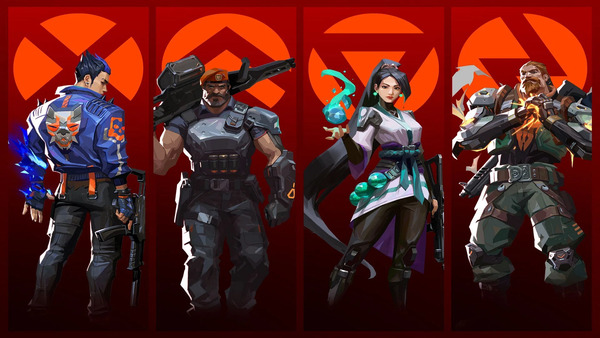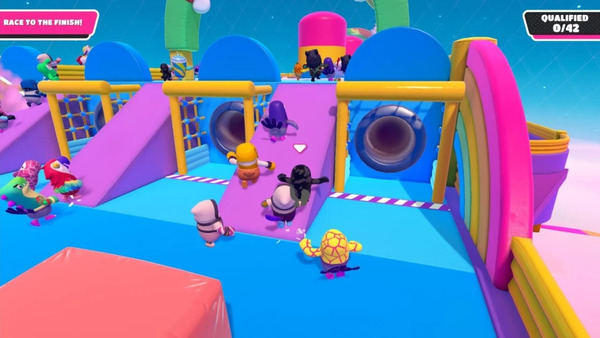Since its launch,
Valorant has become a favorite among FPS enthusiasts due to its tactical depth and dynamic agent abilities. However, one pressing issue that continues to plague the game is
smurfing—when high-ranking players create alternate accounts to play against lower-skilled opponents. Smurfing significantly disturbs the balance of the game, frustrates genuine lower-ranked players, and undermines the competitive integrity of the ranked system. In this article, we will delve deep into the causes, consequences, and potential solutions to smurfing in
Valorant, offering an in-depth analysis of its impact on the game.
What is Smurfing in Valorant?
Smurfing refers to the practice where a high-ranked player creates a new or secondary account to play against lower-skilled players. In
Valorant, smurfing is particularly disruptive because of the game’s skill-based matchmaking system, which is designed to pair players of similar abilities for fair matches.
Smurfing Motives
Players smurf for a variety of reasons. Some do it to help their lower-ranked friends climb the ranks, while others simply want to dominate inexperienced players for personal enjoyment. A more complex motive includes players who create smurf accounts to avoid the stress of high-ranking competitive play and enjoy more casual games.
The Prevalence of Smurfing
While Riot Games actively discourages smurfing, it remains a widespread problem. Smurfing tends to spike after major updates or when new agents are released, as players seek to test abilities without impacting their main account’s rank.
The Impact of Smurfing on Competitive Integrity
Smurfing not only frustrates players but also damages the core competitive framework that
Valorant seeks to maintain. Competitive matchmaking is designed to ensure fair play, but smurfs throw this balance off, resulting in unfair matchups and disheartening experiences for lower-ranked players.
Undermining Player Progression
For players at lower ranks, encountering smurfs is particularly discouraging. Smurfs often dominate these matches, leaving little chance for genuine players to develop their skills or progress through the ranks. This leads to a skewed experience where players may feel they cannot advance because of unfairly matched opponents.
Toxicity in Lower Ranks
In addition to being overpowered, smurfs often bring a level of toxicity to lower-ranked games. Players who dominate easily can become dismissive or insulting toward less-skilled opponents, making the game less enjoyable for casual or newer players.
How Smurfing Affects the Matchmaking System
The matchmaking system in
Valorant is designed to place players in games with others of a similar skill level. Smurfing disrupts this process by introducing players who are significantly more skilled than their rank suggests, leading to one-sided matches and poor overall gameplay quality.
The ELO System and Rank Distortion
Valorant’s competitive ranking system uses an ELO rating system to determine a player’s rank. Smurf accounts distort the ELO system, artificially lowering the rank of skilled players. As a result, matchmaking becomes less reliable, with lower-ranked players being unfairly pitted against opponents far beyond their skill level.
Loss of Trust in Matchmaking
Frequent encounters with smurfs can erode players’ trust in the matchmaking system. If lower-ranked players consistently feel like they are facing opponents they have no chance of beating, they may become discouraged from playing ranked matches altogether, leading to a dwindling player base in certain skill brackets.
Riot’s Response to Smurfing
Riot Games has acknowledged the smurfing problem in
Valorant and has taken steps to combat it. While they cannot eliminate smurfing entirely, Riot has implemented several measures to reduce its prevalence and mitigate its effects on the competitive experience.
Smurf Detection Systems
Riot has developed and implemented smurf detection systems that analyze player performance data across multiple accounts. By identifying accounts that are consistently outperforming their rank, Riot can take action against smurfs, such as accelerating their rank progression or flagging the account for further review.
Account Penalties
Riot has introduced penalties for players caught smurfing. These can range from temporary bans to the restriction of smurf accounts. However, penalties alone may not be sufficient deterrents, as many players simply create new accounts if their smurfs are banned.
The Role of Boosting in Smurfing
Boosting is another form of smurfing, where high-ranked players play on lower-ranked accounts to artificially boost the account’s rank. Boosting is often done for money or favors and undermines the integrity of the ranking system just as smurfing does.
Paid Boosting Services
There is a growing market for paid boosting services, where players can pay high-ranking individuals to boost their accounts. This results in players being placed at ranks they do not deserve, leading to further imbalance in ranked matches.
Boosting vs. Genuine Progress
Players who have been boosted often struggle to maintain their rank once their booster is no longer playing on their account. This results in a frustrating experience for teammates who are paired with boosted players who are not skilled enough to perform at the rank their account is placed in.
How Smurfing Affects New Players
New players are arguably the most affected by smurfing. Being new to
Valorant already presents a steep learning curve, and encountering smurfs can make it even harder for beginners to grasp the game’s mechanics and strategies.
Stunted Skill Development
Smurfing deprives new players of fair competition, which is critical for skill development. Instead of learning from matches that are appropriately challenging, new players are often overwhelmed by the speed, accuracy, and game sense of smurfs, leading to frustration and a poor gameplay experience.
Deterring New Players from Continuing
Smurfing can drive away new players from
Valorant entirely. Many new players who encounter smurfs in their early games find the experience disheartening, leading them to quit the game prematurely. This has long-term effects on the growth of the game’s community.
Community Reaction to Smurfing
The
Valorant community has been vocal about its disdain for smurfing. Forums, social media, and in-game chats are filled with complaints from players who feel that their ranked experience has been negatively impacted by smurfs.
Social Media Outrage
Platforms like Reddit and Twitter often see an influx of complaints after players experience smurfs in their games. This community-driven feedback has led Riot Games to prioritize smurf detection and punishment, as they recognize the detrimental effect it has on player retention.
Players Taking Matters into Their Own Hands
Some players have resorted to intentionally trolling smurfs or deliberately throwing games when they believe they are matched with or against smurfs. While this is not a productive solution, it highlights the level of frustration smurfing has caused within the
Valorant community.
The Psychological Impact of Smurfing
The psychological impact of smurfing should not be overlooked. Constantly losing to smurfs can affect a player’s confidence, leading to anxiety about playing ranked matches and negatively impacting their mental state during gameplay.
Loss of Confidence
Repeatedly facing smurfs can make players feel as though they are not progressing, even if they are improving. This loss of confidence can lead to performance anxiety, making players hesitant to queue for competitive matches and negatively impacting their overall experience.
Burnout and Frustration
For some players, smurfing contributes to burnout and frustration. If every game feels unwinnable due to the presence of smurfs, players may become disillusioned with
Valorant and quit playing entirely, especially in ranked modes.
Potential Solutions to the Smurfing Problem
While smurfing may never be completely eradicated, there are several potential solutions that Riot Games could explore to reduce its prevalence and mitigate its impact on the player base.
Hardware-Based Account Restrictions
One solution could involve implementing hardware-based account restrictions that limit the number of alternate accounts a player can create. This would make it harder for players to create smurf accounts and discourage them from doing so.
Stricter Rank Progression
Introducing stricter rank progression for new accounts could help ensure that smurfs are quickly moved to higher ranks where they belong. This could involve a more aggressive ranking system that places players in the appropriate rank based on performance across a smaller number of games.
Conclusion
Smurfing in
Valorant continues to be a significant challenge for Riot Games, impacting the competitive integrity of the game and frustrating players across all skill levels. From its effects on matchmaking to the community’s reaction, smurfing disrupts the player experience and erodes trust in the game’s competitive system. However, with continued advancements in smurf detection and community feedback, Riot has the tools to mitigate this issue and ensure a more fair and enjoyable experience for all players.




 Team Fortress 2
Read full review
Team Fortress 2
Read full review
 Schedule I
Read full review
Schedule I
Read full review
 Brawl Stars
Brawl Stars review: Explore fast-paced modes, unique characters, and dynamic gameplay in Supercell's hit mobile multiplayer game. Perfect for casual and competitive play
Read full review
Brawl Stars
Brawl Stars review: Explore fast-paced modes, unique characters, and dynamic gameplay in Supercell's hit mobile multiplayer game. Perfect for casual and competitive play
Read full review
 Free Fire
Free Fire excels in mobile battle royale with engaging gameplay and accessibility, though itfaces challenges in monetization and balance.
Read full review
Free Fire
Free Fire excels in mobile battle royale with engaging gameplay and accessibility, though itfaces challenges in monetization and balance.
Read full review
 Stumble Guys
Stumble Guys offers addictive, chaotic fun with vibrant visuals and simple mechanics. It’s a hit in the party game genre, with a bright future ahead.
Read full review
Stumble Guys
Stumble Guys offers addictive, chaotic fun with vibrant visuals and simple mechanics. It’s a hit in the party game genre, with a bright future ahead.
Read full review
 The Legend of Zelda
The Legend of Zelda has shaped gaming for decades with innovative gameplay, iconic characters, and cultural impact. It continues to influence and inspire across the industry.
Read full review
The Legend of Zelda
The Legend of Zelda has shaped gaming for decades with innovative gameplay, iconic characters, and cultural impact. It continues to influence and inspire across the industry.
Read full review



















